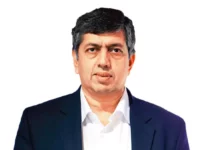Pawan Kant Munjal
In a startling development that has sent ripples across the corporate landscape, Pawan Kant Munjal, the Chairman and Managing Director of Hero MotoCorp, has come under the stringent scrutiny of the Enforcement Directorate (ED). On November 10, in a significant move against the backdrop of a money laundering investigation, the ED seized assets worth Rs 24.95 crore associated with Munjal.
Enforcement Directorate (ED)
This move is part of a broader investigation involving allegations of illegal foreign exchange movements, tax evasion, and potential corporate misdealings, signalling a tough stance by regulatory authorities on financial malpractices in the corporate sector.

Asset Seizure
The seizure, enacted on November 10, includes three immovable properties in Delhi, attached provisionally under the Prevention of Money Laundering Act (PMLA).
Key points:
- The ED attached three immovable properties of Munjal in Delhi under the Prevention of Money Laundering Act (PMLA).
- The case is based on a Directorate of Revenue Intelligence (DRI) charge sheet, which accused Munjal of illegally taking foreign exchange/currency out of India.
- The probe originated from a DRI complaint against an individual purportedly close to Munjal, who was under scrutiny for allegedly carrying undeclared foreign currency.
- The prosecution complaint alleges that foreign currency/foreign exchange equivalent to Rs 54 crore was illegally taken out of India.
- In March 2022, the Income-Tax (I-T) department conducted raids on Munjal and Hero MotoCorp as part of an investigation into tax evasion.
- In June 2022, the Ministry of Corporate Affairs (MCA) initiated an investigation to assess the connection between the company and a third-party vendor in a case involving the alleged diversion of funds.
Additional notes:
- Hero MotoCorp is the world’s largest two-wheeler manufacturer by unit volume sales.
- The company has a global presence, operating in 40 countries across Asia, Africa, and South and Central America.
Hero MotoCorp
The recent actions taken by the Enforcement Directorate (ED) against Pawan Kant Munjal, the CMD of Hero MotoCorp, have several consequential drawbacks:
- Corporate Image: The attachment of Munjal’s assets and the ongoing investigation can tarnish the reputation of Hero MotoCorp, potentially leading to a loss of investor confidence and a negative impact on the stock market performance of the company.
- Operational Disruptions: The legal troubles of a top executive could lead to disruptions in the company’s operations, especially if it affects key decision-making or results in a leadership vacuum.
- Market Perception: As Hero MotoCorp prides itself on being a market leader, the allegations of money laundering and tax evasion might erode the trust of customers and partners. This could affect sales and future business opportunities.
- Financial Impact: The legal costs associated with defending Munjal in this investigation, along with any potential fines or penalties that might be levied, could strain the financial resources of Hero MotoCorp.
- Regulatory Scrutiny: This incident could invite further scrutiny from various regulatory bodies, leading to more stringent oversight and compliance requirements that could be costly and time-consuming.
- Distraction from Core Business: Addressing these legal issues can divert attention and resources from the company’s core operations and strategic initiatives.
- Global Expansion Impact: As Hero MotoCorp operates in multiple countries, international regulatory bodies might also take an interest, potentially affecting its global operations and expansion plans.
- Employee Morale: Such high-profile investigations can affect the morale of the employees, creating an atmosphere of uncertainty and fear, which might lead to decreased productivity and talent retention issues.
The extent of these drawbacks will largely depend on the outcomes of the investigations and any subsequent legal proceedings.
Analysis
The seizure of assets worth Rs 24.95 crore from Pawan Kant Munjal, the CMD of Hero MotoCorp, by the Enforcement Directorate (ED) is a significant development in the context of corporate governance and regulatory oversight in India. This action represents a stringent application of the Prevention of Money Laundering Act (PMLA), showcasing the government’s resolve to clamp down on financial improprieties. Here’s an analysis of the situation:
Regulatory Environment: The Indian regulatory environment has been tightening, with increased vigilance over financial transactions and corporate governance. This move by the ED is in line with the recent trend of enforcing stricter compliance with anti-money laundering laws and regulations.
Corporate Governance Impact: The investigation into Munjal’s activities and the subsequent asset seizure underlines the importance of transparent and accountable leadership in corporations. It also raises questions about the internal controls and compliance mechanisms at Hero MotoCorp, potentially indicating a need for stronger governance structures.
Market Confidence: The public nature of the investigation and the high profile of the individual involved are likely to affect investor confidence, not just in Hero MotoCorp but potentially in the broader market as well. Investors might become more cautious, leading to a reassessment of risk in investments associated with corporate leaders under scrutiny.
Legal Precedence: This case could set a legal precedent for how similar cases are handled in the future, particularly in how assets are seized and the degree of evidence required for such actions. It could also influence the conduct of other corporate leaders who might tighten their compliance policies to avoid similar scrutiny.
Global Implications: Given Hero MotoCorp’s international presence, this incident may attract global attention and could have implications for the company’s operations and partnerships overseas. International markets and regulatory bodies may observe the proceedings closely, affecting the company’s international reputation and dealings.
Operational Continuity: A critical concern for Hero MotoCorp will be maintaining operational continuity. With its leadership under investigation, the company will need to ensure that its daily operations and long-term strategic initiatives are not adversely affected.
Future of Corporate Practices in India: This episode could lead to a broader shift in how companies in India manage compliance and governance. There might be a renewed focus on ethical practices, with companies proactively strengthening their legal and audit functions to prevent any violations that could attract regulatory action.
Prevention of Money Laundering Act (PMLA)
While the direct impact of the ED’s action on Hero MotoCorp’s business remains to be seen, the indirect effects on corporate India could be far-reaching, potentially leading to a more compliant and transparent business environment.
Munjal, who leads as the Chairman and Managing Director of Hero MotoCorp Ltd, faces allegations based on a Directorate of Revenue Intelligence (DRI) charge sheet. The charge sheet accuses him of illegally moving foreign exchange/currency out of India. The ED’s decisive action follows a series of raids against Munjal and his companies initiated in August after the PMLA case began.
This case sprang from a DRI complaint involving an associate allegedly close to Munjal, suspected of smuggling undeclared foreign currency. The ED asserts that foreign currency totalling Rs 54 crore was illicitly taken out of India.
Future
The future implications of the Enforcement Directorate’s (ED) seizure of Pawan Kant Munjal’s assets are multifaceted, with potential consequences that can shape the trajectory of Hero MotoCorp as well as set a tone for corporate governance in India:
- Corporate Governance Reforms: This incident may lead to intensified calls for reforms in corporate governance, with companies possibly revisiting their compliance structures and internal controls to safeguard against such legal challenges.
- Investor Scrutiny: The investment community may become more vigilant, scrutinizing the governance practices of companies before committing funds. This could affect the flow of investments, particularly in sectors where such issues are prevalent.
- Regulatory Action: The ED’s action against a high-profile corporate leader might embolden regulatory bodies to pursue other cases more aggressively, leading to stricter enforcement of financial regulations.
- Global Business Practices: Hero MotoCorp’s global presence means that the repercussions of this case may be felt internationally. There could be a tightening of due diligence practices by foreign partners and international regulatory agencies.
- Market Position and Competitiveness: Hero MotoCorp will need to navigate the reputational impact of this investigation carefully to maintain its market position and competitiveness, both domestically and globally.
- Leadership and Succession Planning: The company might have to consider its leadership succession planning to ensure stability and continuity in its strategic direction.
- Transparency and Disclosure: There could be a shift towards more transparency and full disclosure in the financial dealings of companies to pre-empt regulatory interventions.
- Legal Precedents: Depending on the outcome, this case may set legal precedents regarding the seizure of assets under PMLA, influencing how similar cases are handled in the future.
- Corporate Ethics and Culture: A broader impact might be on the overall corporate culture in India, with ethics and compliance becoming central to business education and practice.
- Stock Market Dynamics: The immediate impact on the stock market could be negative in terms of Hero MotoCorp’s share price; however, if the company manages the crisis effectively, it could recover and potentially strengthen its investor relations.
In essence, the future following the ED’s actions against Munjal and Hero MotoCorp could lead to a more stringent regulatory environment, with significant changes in corporate practices, investor relations, and market dynamics.
Investor Confidence
Earlier in March 2022, the Income-Tax Department had conducted raids on Munjal and Hero MotoCorp for suspected tax evasion. Later, in June, Reuters reported that the Ministry of Corporate Affairs (MCA) began an inquiry to examine potential financial discrepancies between the company and a third-party vendor, focusing on possible fund diversions.
Hero MotoCorp, renowned as the world’s largest two-wheeler manufacturer since 2001 based on annual unit sales, continues to dominate the market for over two decades. With a footprint in 40 countries across Asia, Africa, and the Americas, the company’s global reach remains strong despite the challenges on the home front.
Conclusion
The enforcement action against Pawan Kant Munjal marks a crucial moment of reckoning for corporate governance and compliance in India. While the full impact of these proceedings on Hero MotoCorp’s operations and market standing remains to be seen, the incident highlights the imperative for transparency and adherence to legal and ethical standards in business practices.
As the investigation continues, it serves as a stark reminder of the potential consequences of regulatory infractions and the importance of robust financial conduct within the echelons of corporate power. Hero MotoCorp’s journey ahead may be fraught with challenges as it navigates through the repercussions of these allegations and strives to maintain its position as a global industry leader.





































